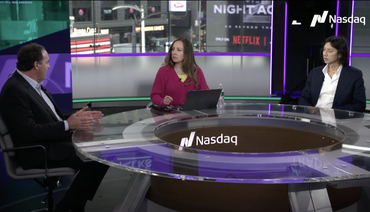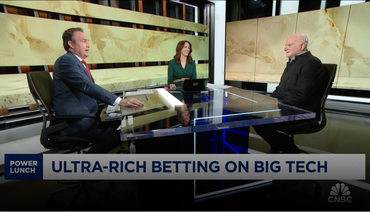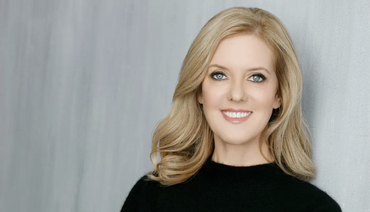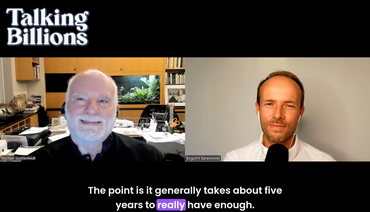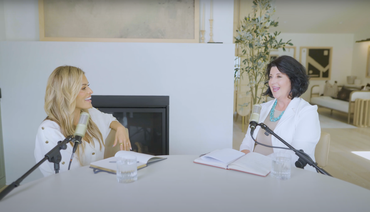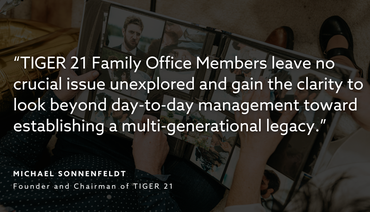PIMCO’s Mohamed El-Erian on Sea Change in Global Economic Markets
PIMCO’s Mohamed El-Erian Talks to TIGER 21 on Sea Change in Global Economic MarketsNEW YORK (July 23, 2008) ‚Äì Continuing to provide its members with access to the top minds in thefinancial world, TIGER 21 welcomed Pacific Investment Management Company’s Co-CEO and Co-CIOMohamed El-Erian to its July all-member luncheon. Mr. El-Erian warned that the current market upheavalis much more than a downward trend or correction ‚Äì a major retooling of all financial systems is needed. Hewalked the audience through factors that have contributed to the current credit crisis and financial systemturmoil, what investors should be prepared for, and what they need to be doing about it.A widely sought ‚Äìafter speaker, Mr. El-Erian has a new book, When Markets Collide: Investment Strategiesfor the Age of Global Economic Change, which has just been published by McGraw-Hill Professional. Mr.El-Erian was also interviewed prior to his presentation and that session will be the second installment in theTIGER 21 interview series with world’s top financial expert presenters (to view, visit www.tiger21.com).Mr. El-Erian joins a list of top-flight investors and money managers that have presented to TIGER 21,including Stephen A. Schwarzman, Chairman, CEO and co-founder of the Blackstone Group; Alan “Ace”Greenberg; co-founder of the Caryle Group David M. Rubenstein; and oil and water mogul T. BoonePickens.”Mohamed El-Erian’s credentials are impeccable and his clear account of the market turbulence as well asthe risks and opportunities it presents is invaluable,” said Michael Sonnenfeldt, founder and chairman ofTIGER 21. “I am happy that we were able to secure his appearance and that so many TIGER 21 membersavailed themselves of the opportunity to hear him.Mr. El-Erian argues that we are experiencing fundamental market change and that individual investors,institutions, and governments need to recognize this fact and adapt. To illustrate the extent of this change,Mr. El-Erian suggests that if a year ago he said that there would be trouble in the most sophisticatedfinancial system in the world; that nearly $400 billion in capital would be raised and wiped out; and that animportant source of that capital would be poor countries, most investors would dismiss him. “This scenariowas unthinkable a year ago, but it is what has happened,” he reminded the audience.He, along with his colleagues at Harvard Management as well as those at PIMCO ‚Äì two institutions withlong-term views ‚Äì started noticing signs of trouble in 2006. He explains that the normal noise in themarket ‚Äì which can usually be disregarded ‚Äì went from being sequential to simultaneous. This caught theirattention.Unfortunately, it did not get the attention of policy makers and most of the financial world. And when “thefinancial systems do not recognize signals and there are major inconsistencies between signals and systems,something is going to break,” he says.Following are some additional highlights from his presentation to TIGER 21:A lot of noise: Why signals went unrecognized ‚Äì while the financial system is good at identifyingeach signal individually, the system was awful at understanding how they interact. We’ve realizedthat economic growth was shifting away from the U.S. to emerging markets like China and India‚Äì yet investors forgot that growth is non-linear ‚Äì we go through long periods, then short spurts ofrapid change. While many people realized that India and China were becoming more important, theyunderestimated how quickly this was going to happen.Pace of change: Mr. El-Erian also underestimated how quickly the markets would change. “WhenI started writing the book last fall, I thought I was writing something forward looking. When it wentinto production I realized that it was current events, and I hope that it will soon be ancient history,although I have a sense that it will not. The basic theme of the book is that the markets of tomorroware colliding with the markets of today.”On Risk Management: Just in time risk management does not work. Mr. El-Erian is terrified by theextent that some very sophisticated risk managers rely on the new fangled assessment tools to let themwait for the turn in the cycle and then get out, rather than unloading an investment before the turn.Mr. El-Erian believes in old fashioned risk management ‚Äì “Ask yourself how much money can I looseand am I willing to lose that much money. And if the answer is no, go out and try to clip your tail.”Not going to get help from policy makers: Policy makers in the U.S. were taken by surpriseaccording to Mr. El-Erian. “They are very smart and well-intentioned, but central bankers here havetoo many objectives. They get an A+ for effort, but a B+ for outcome. The transmission mechanism isbroken and policy instruments are too blunt.Retooling needed: What’s coming in the near term? The biggest risk is that credit crunch hasmorphed into something much more sinister: global economic slowdown. When you have a slow-downand a financial system that is trying to recapitalize itself, the only solution is a new balance sheet. Allsystems need to be retooled ‚Äì and we cannot get there overnight. Mr. El-Erian suggests that there willbe more market accidents and more policy mistakes.Fasten your seatbelts: In the long term, Mr. El-Erian sees a world that is much more balanced.For the last 10 years or so the global economy was a plane flying on one very big engine ‚Äì the U.S.consumer ‚Äì and we made a tremendous effort to keep that plane at really high altitudes. This bigengine is absolutely exhausted and the plane is losing altitude. In the future, the plane that is theglobal economy will be propelled by a number of smaller engines that will make for a much morestable ride. However, moving from the big engine to a lot of smaller engines will be a bumpy processso Mr. El-Erian suggests we “put our seat belts on.”Silver lining: Mr. El-Erian said he was much more worried 1 ¬Ω years ago ‚Äì that was when youcouldn’t find anything to buy because everything was too expensive. The good news in all the marketchanges since then is that there are lots of opportunities now‚Äì in terms of pricing. He points tomunicipal tax free bonds as the most extreme example‚Äì the yield is higher than the yield on taxableinstruments with same credit quality.He sees the same issues with high quality mortgages, bank debt, and swaps ‚Äì in today’s world thevalue of an instrument is no longer strictly correlated to its fundamental attributes ‚Äì it depends onwhether you can finance the holdings. If you cannot finance the holdings the instrument will tradeextremely cheap relative to its fundamentals.Systemically important countries: Responding to a member question on how likely it is that thesystemically important countries will be able to manage the success of their economies, Mr. El-Eriansaid that we forget how hard it is to manage success and that some countries will be better at steeringtheir economy. The most important countries in this equation ‚Äì China, India, Russia and parts of theMiddle East will get it right. Which is why he is bullish on the global economy over the medium term.On the other hand, he suggests that the risk for failure is much higher in countries like Venezuela andArgentina.How to weather the market:In order to weather the storm that is the financial markets, investors need to know the answer to thesefour questions about their portfolios:1 – How much home bias do I have? Your portfolio should not be too heavily weighed with U.S.investments, because the domestic market is becoming less dynamic. Portfolios need diversification.2 – Do I have any inflation protection? ‚ÄìThis was not needed during the past decade, but now we livein a world of inflationary pressures, although actual inflation is open for debate.3 – What am I willing to put up with? Am I ever going to be forced to sell? If the answer is yes, sellnow.4 – Who is managing my risk ‚Äì who is cutting off the tail of the distribution? Can you identify eitheran instrument or a manager who is doing this? If the answer is no ‚Äì you need high cash element.Investors are living through a very bumpy transformation. Once we get there it will feel good, Mr.El-Erian assures us. But the journey will be very difficult because a lot of retooling is required ‚Äì forindividuals, companies, governments and the multi-lateral system. He goes into great detail about thisin his book and cautions that it will not happen overnight.About TIGER 21TIGER 21 is the nation’s premier peer-to-peer learning group for high net worth investors. Building onshared collective intelligence, TIGER 21 members seek to enhance investment returns while limitingtheir investment risks to acceptable levels. There are currently sixteen TIGER 21 learning groups,representing more than 160 investors, with investable assets over $10 billion. Founded in New York,TIGER 21 now has investor groups in New York, California, Florida and Texas. For more, visit https://staging.tiger21.com.
About TIGER 21
TIGER 21 is an exclusive global community of ultra-high-net-worth entrepreneurs, investors, and executives.
Explore the TIGER 21 Member Experience